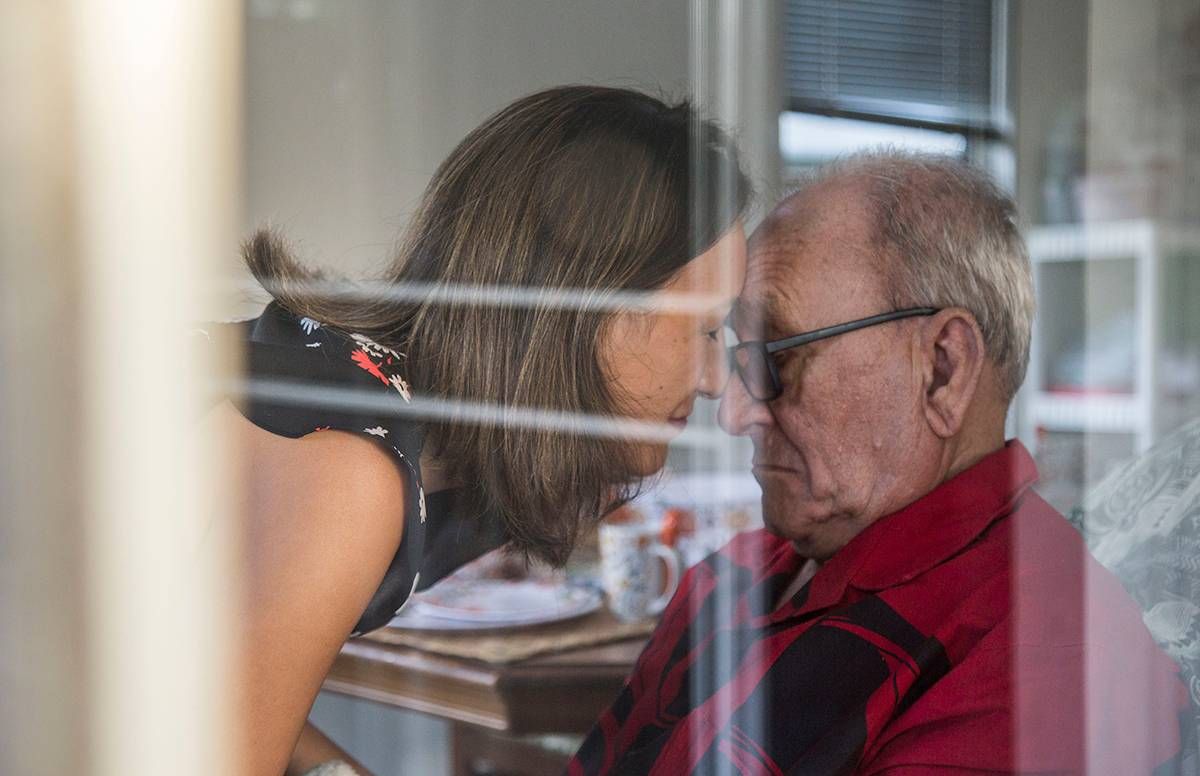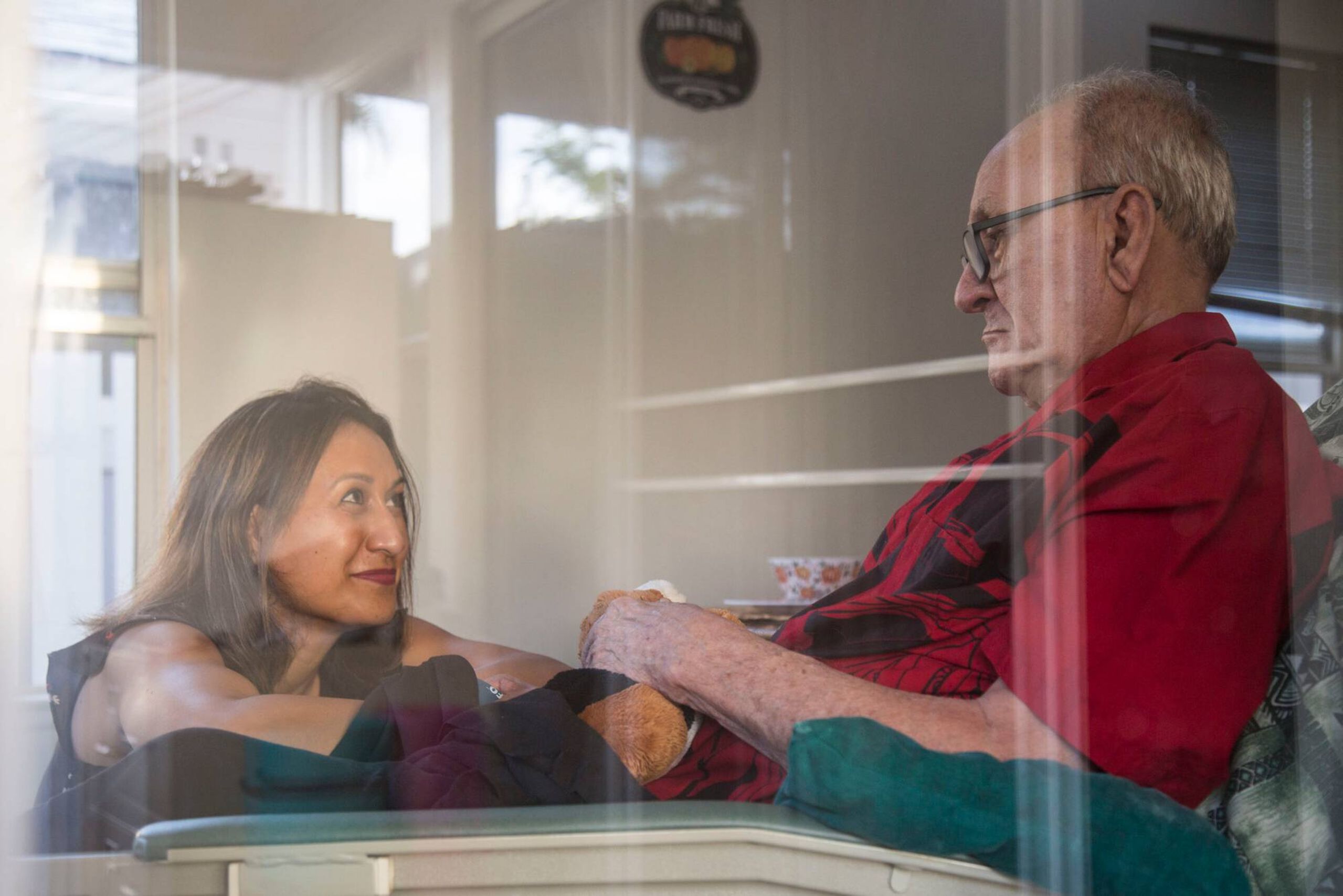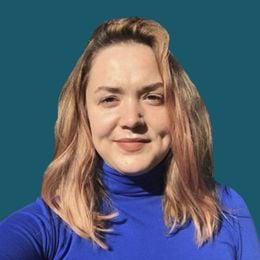Dr. Poki’i Balaz Brings Caregivers Strength in Her Hawaiian Homeland
A caregiver herself, Balaz left a big hospital job to take care of her father — and her people
(Editor's note: This story is part of Taking Care, an ongoing series on the diverse lives of America's family caregivers, with support from The John A. Hartford Foundation.)
Ever since she was a kid, Dr. Poki'i Balaz wanted to be a surgeon.

And the Wahiawa, Hawaii native enrolled in the University of Hawai'i at Hilo, was on track to do so, until her father was diagnosed with Alzheimer's.
"I realized I didn't know that much about the brain, and as I started learning, I became more fascinated with this disease," she says. "When I came home, I was like, 'I can't take care of my dad if I don't know this.'"
So she became a nurse practitioner, focusing on neurology, brain health and native Hawaiian health, knowing her father's Alzheimer's was advancing, and knowing — culturally — she'd step in to help her family take care of him eventually.
In 2012, after establishing herself and a successful career at Cedars-Sinai hospital in Los Angeles, her mother — needing assistance with her husband — made the call, and Balaz came right home.
"It was an easy and a hard decision," she says. "I was on track with my hospital in terms of my progression and where I was going to go, moving into management eventually."
But being native Hawaiian to Balaz means that culturally, elders are held in high esteem.
"My father expressed he wanted to be taken care of at home, and I decided to honor that for him," she says.
'I Love Coming Home and Seeing His Smile'
At 37, Balaz — who lives with her parents and her boyfriend in Aiea — begins every day with range of motion exercises with her father, John Balaz, 79, plus a bath and breakfast. When she first moved home, being a caregiver was her full-time job.
Now, care duties are shared among the household, and Balaz is back to work.
"I love coming home and seeing his smile," she says. "I try to always make it home when he's still awake."
Balaz is a geriatric nurse practitioner at Kōkua Kalihi Valley, works in a COVID-19 clinic on Saturday, is the director of nursing at Lunalilo Home for low-income native Hawaiian elders, an assistant professor of geriatrics at Chaminade University of Honolulu and serves as vice chair on the board of the Alzheimer's Association Aloha Chapter, where she runs caregiver support groups and gives lectures on Alzheimer's and caregiving.
Guiding Native Hawaiians in Care
Though native Hawaiian tradition is to care for one's elders yourself, Balaz says education around Alzheimer's and caregiving is lacking in the community.
"Right now, we are so focused on diabetes and hypertension, which we should be. But those are all precursors or help this disease to come," Balaz says. "We still have the stigma of 'Oh, mom is 80, of course she's going to forget. It's Thursday mom, don't you remember?'"
There's also the undeniable stress that comes with caring for a loved one at home. In Hawaii, it's not uncommon for high school and elementary school kids to be caregivers. Or for college students to miss school to take care of someone at home.
They trust her for her knowledge of western medicine and cultural protocols.
"There are so many dynamics we need to educate on and provide resources for," Balaz says.
The decision to move home and care for her father came with a huge price and cost, she says, and continues to affect her life. In August, her father almost died. No one in her household thought he would live, but Balaz resuscitated him per her mother's wishes.
"Many caregivers make that promise without knowing and understanding what is to come," Balaz says. "As much as people with dementia become isolated, so do we. Your circle becomes small, and depression and all of these things start to compile."
In seeing caregivers come to her clinic and support groups, Balaz tries to provide comfort to individuals and families who realize they can no longer sustain caregiving on their own.
"Things change and families realize they can't do it. Whatever your reason, it's OK," she says.
Balaz's Unique Medical Practice
Balaz is uniquely qualified to lead awareness and education efforts because of her native Hawaiian identity and affinity for Hawaiian medicine.
"Our elders still have distrust for western medicine and the system in general because of history," she says. "It brings in a lot of political things — unrest and feelings that haven't been resolved. You can't talk about our health without encompassing all of that."

In the clinic, native Hawaiian patients say things to Balaz like, "I can bring my mom to you because you're native Hawaiian."
They trust her for her knowledge of western medicine and cultural protocols — like being family- and community-based, as well as her openness to talking about Hawaiian medicine — which she looks to include in her medical practice.
"I have had people say to me, 'It's nice to see one of our own where you're sitting,'" Balaz recalls.


